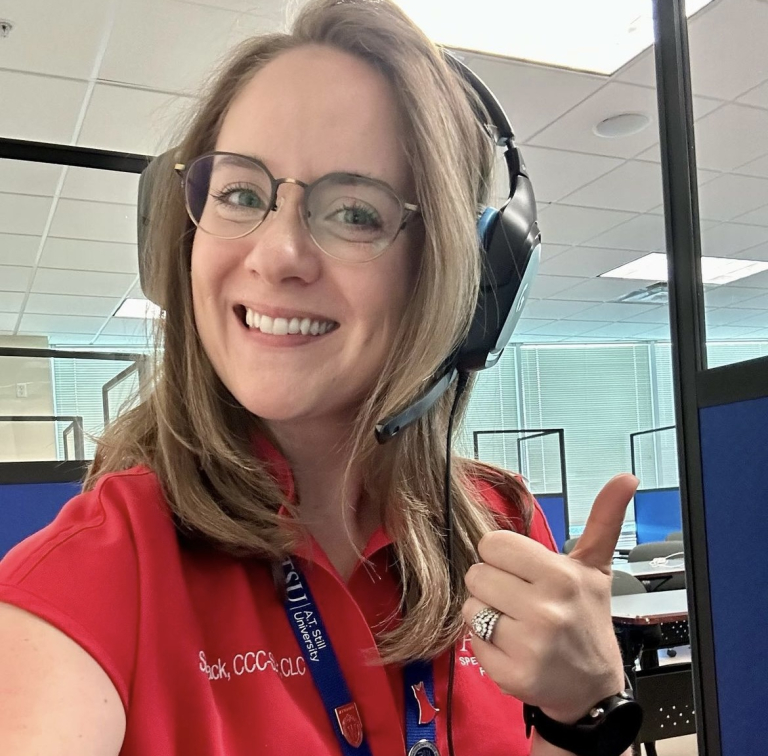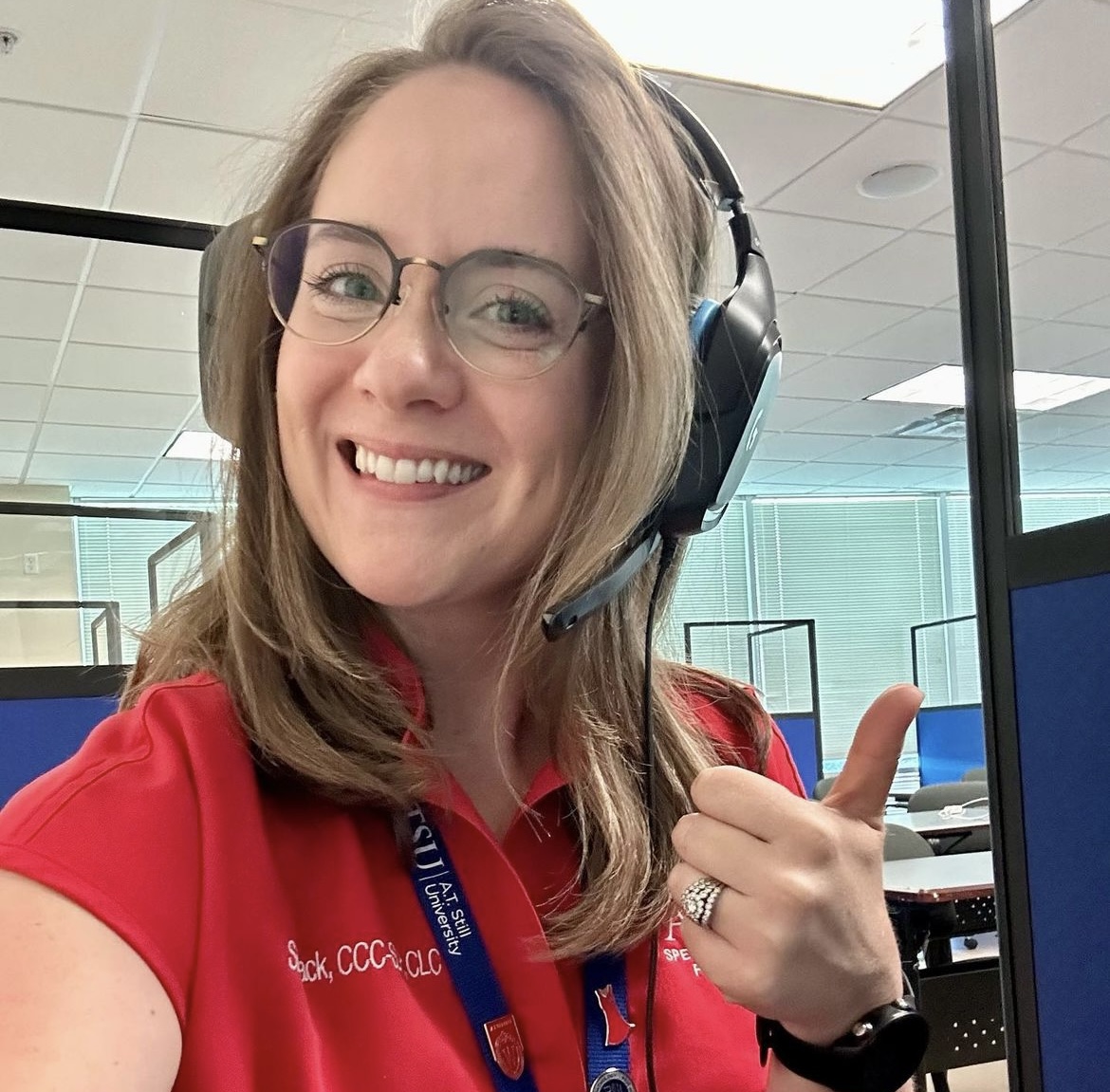ATSU-ASHS SLP students strengthening cultural awareness and providing care through telehealth
Posted: July 18, 2023
Students in A.T. Still University’s Arizona School of Health Sciences (ATSU-ASHS) Speech-Language Pathology (SLP) program are providing essential speech assessments for children in Botswana through telehealth visits, reaching remote areas where access to such care is difficult to find.
“We wanted our students to be immersed in another culture,” explained instructor Ivonne Maldonado de La Rosa, PhD, MS, CCC-SLP, who, along with instructor and director of clinical education, Maggie Sudimack, MA, CCC-SLP, and associate professor and program director, María Centeno-Vázquez, PhD, CCC-SLP, BCS-S, organized and supervised these international assignments.

Dr. Maldonado de La Rosa also worked with Briana Bonner, OTD, OTR/L, assistant professor and academic fieldwork coordinator in ATSU-ASHS’ Occupational Therapy (OT) department, to help bring these telehealth sessions to fruition.
In 2019, Dr. Bonner established an OT pediatric outpatient clinic in Gaborone, Botswana. Since joining ATSU in July 2022, Dr. Bonner and her OTD and MSOT students have conducted telehealth OT sessions with many of the parents of pediatric patients at her clinic.
Now, these telehealth sessions have expanded to include the SLP program, an example of interprofessional education and collaboration at ATSU.
As part of the SLP program’s telepractice methodology class, each student was assigned one child, and from there, a speech and language screening process was developed. A majority of the children, who ranged in age from 3 to 19, had autism as well.
“They knew their age, so they prepared for doing the whole speech and language screening, an interview with the parents, offering education, and then at some point sending some emails for them to continue working at home with their children,” Dr. Maldonado de La Rosa said.
“It’s not the same as talking here,” she added, explaining that students are, “being immersed in a culture where you have to be cognizant about the recommendations you’re offering, you have to be aware of how you talk to them.”
These speech screenings provided parents with an understanding of how they can help their children better communicate, even without access to traditional speech therapy services.
“The big part of it was troubleshooting with the technology. They don’t have the means in Botswana, sometimes they don’t have the resources. A lot of the parents couldn’t do Zoom, so we ended up having to do WhatsApp video calls, or trying to find out ways where they could get access to it. A lot of the students ended up just talking to the parents, because they couldn’t see the child because they couldn’t turn on their cameras, or their service was not the best,” Dr. Maldonado de La Rosa said.
Dr. Maldonado de La Rosa is looking forward to incorporating more telehealth sessions into the SLP program’s curriculum.
As students continue to break down barriers to care in Botswana, not only will they be providing essential services for underserved populations, but they will also work towards becoming the most culturally responsive practitioners they can.
“The students felt more culturally aware of the differences,” she explained. “They felt like they made a change in the parents’ life. They felt like they wanted to do more.”
